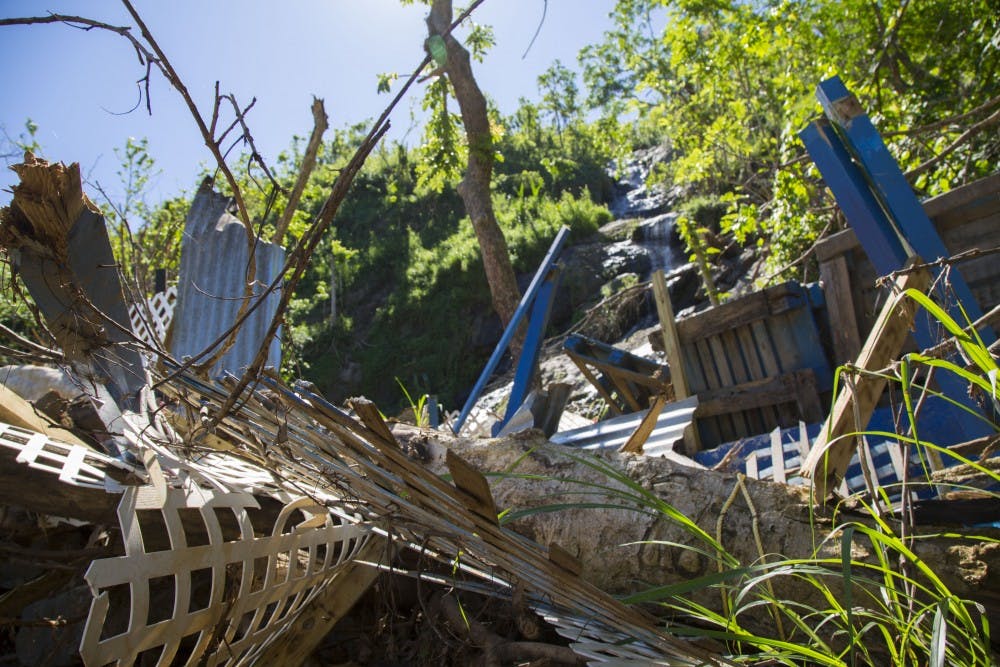Three months after Hurricane Maria wreaked havoc across Puerto Rico, UNC professor Javier Arce Nazario visited the island's mountain communities to speak with residents about their water systems.
This occurred a month after more than 80 percent of the country’s residents were without power, and a third of households were without reliable drinking water. When Arce Nazario revisited, most of the country was still reeling from the effects of Maria.
The visit was a part of Arce Nazario’s ongoing research on the biophysical and social components of Puerto Rican landscapes. As an associate professor of geography, Arce Nazario has been examining how oral histories of Puerto Rican residents inform evidence about water quality and system adaptability to extreme natural events.
Arce Nazario’s seminar, titled “Water Quality and Environmental Justice,” is a component of the “Tell About the South” series sponsored by The Center for the Study of the American South.
In his lecture, Arce Nazario stressed the importance of integrating oral history into a comprehensive understanding of landscapes.
“You cannot disentangle the cultural aspects of the processes that are happening in the environment, and just think about the very particular physical and biological measurements,” Arce Nazario said. “The landscape is not only plants and rocks and water – they’re people. People interact with the landscape, and they don’t only see trees. They see histories of their family – they see nationality.”
Through his seminar, Arce Nazario examined the structure and function on the non-PRASA communities in Puerto Rico, those who lived beyond the limits of the Puerto Rico Aqueduct and Sewer Authority. The authority operates around the coastal cities of the island, leaving mountain communities to operate their own diverse, small scale water systems.
Due to the high prevalence of non-compliance with federal standards, health departments previously disapproved of these small-scale systems, claiming rural people have no technological, organizational or financial skills to operate independent systems.
But these surface water systems were up and running a few days after Maria, while some centralized water systems took months to recover. Following the hurricane, authorities began paying closer attention to the water systems of rural communities and began financing initiatives to make these systems more sustainable.




